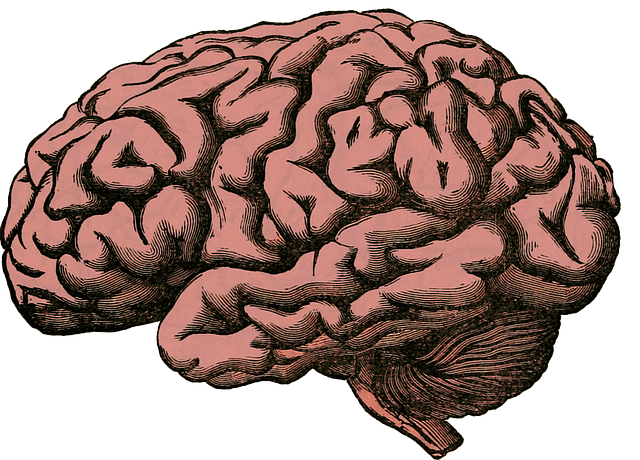Advocating for effective mental health support systems for older adults with autism spectrum disorder (ASD) requires understanding and addressing their unique challenges, such as age-related comorbidities and social isolation. This includes proposing evidence-based solutions like public awareness campaigns, tailored therapy strategies, and specialized therapy for elders with ASD. By filling policy gaps and enhancing access to resources, we can improve emotional regulation, coping strategies, and adaptive behaviors in this demographic. Key strategies include mental wellness coaching programs, community outreach, and resilience-focused initiatives, ensuring better mental health care and overall well-being for elders with ASD. Effective policies and advocacy are crucial for integrating therapy for elders with ASD into comprehensive care frameworks.
Mental health policy analysis and advocacy are essential components of improving access to care, particularly for underserved populations like the elderly with Autism Spectrum Disorder (ASD). This article explores a comprehensive framework for navigating mental health policies while shedding light on the unique challenges faced by the elderly with ASD. We delve into current therapies and support systems, highlighting gaps in healthcare access. By analyzing effective strategies for policy change, we aim to revolutionize care, ensuring optimal therapy for elders with ASD.
- Understanding Mental Health Policy: A Framework for Advocacy
- The Impact of Autism Spectrum Disorder on Elderly Populations
- Current Therapies and Support Systems for ASD in the Elderly
- Gaps in Healthcare Access and Their Implications for Elderly ASD Patients
- Effective Strategies for Policy Change and Advocacy
Understanding Mental Health Policy: A Framework for Advocacy

Understanding mental health policy is a cornerstone for effective advocacy, especially when addressing complex issues like autism spectrum disorder (ASD) in older adults. Mental health policies shape access to services, resources, and support systems, directly impacting how individuals with ASD navigate their therapy journeys. A comprehensive framework should consider the unique challenges faced by this demographic, including age-related comorbidities and social isolation.
Advocacy efforts can be guided by analyzing existing policy structures, identifying gaps, and proposing evidence-based solutions. For instance, promoting public awareness campaigns targeting older adults with ASD can reduce stigma and encourage help-seeking behaviors. Additionally, integrating risk management planning into training for mental health professionals ensures they are equipped to support individuals on the spectrum, providing tailored therapy strategies that cater to their distinct needs. Such an approach fosters a more inclusive and responsive mental health care system.
The Impact of Autism Spectrum Disorder on Elderly Populations

The prevalence of Autism Spectrum Disorder (ASD) among the elderly population is a growing concern, often overlooked within the broader mental health discourse. As our society ages, it’s crucial to understand that ASD can persist into later life and present unique challenges for older adults with this condition. The impact extends beyond childhood, affecting social interactions, communication skills, and overall well-being. Many elders on the autism spectrum struggle with emotional regulation, often experiencing heightened anxiety and sensory sensitivities in unfamiliar environments, which can isolate them further.
Access to tailored therapy for elders with ASD is essential for enhancing their mental health awareness and fostering positive thinking. Specialized interventions can improve coping strategies and adaptive behaviors, enabling them to navigate social settings more comfortably. By promoting understanding and providing appropriate support, we can significantly improve the quality of life for this underserved group. Mental health advocates must push for increased recognition and resources dedicated to meeting the specific needs of elderly individuals with ASD, thereby ensuring better emotional regulation and a more inclusive society.
Current Therapies and Support Systems for ASD in the Elderly

The support and therapies available for individuals on the Autism Spectrum Disorder (ASD) spectrum have evolved significantly, but there is still a notable gap in resources tailored specifically to the elderly population with ASD. Traditional therapeutic approaches, such as applied behavior analysis (ABA), have been effective in managing core symptoms of ASD during childhood, but their application in older adults often requires modification to address unique challenges associated with aging.
Mental health professionals are increasingly recognizing the need for specialized interventions considering the rising prevalence of ASD in the elderly. This includes not only adapting existing therapies but also promoting mental wellness through coaching programs that cater to this demographic. For instance, developing mental wellness coaching programs tailored to older adults with ASD can improve their overall mental health awareness and quality of life by teaching coping strategies and enhancing social skills. Simultaneously, risk management planning is crucial; professionals must be prepared to navigate the complex interplay between ASD, aging, and potential mental health crises, ensuring a comprehensive and supportive care system.
Gaps in Healthcare Access and Their Implications for Elderly ASD Patients

The elderly with Autism Spectrum Disorder (ASD) face unique challenges in accessing healthcare services designed for their specific needs. Gaps in care often stem from a lack of specialized resources and professionals trained in working with older adults on the spectrum. This accessibility issue is profound, especially when considering the complex interplay between ASD symptoms, aging processes, and potential co-occurring mental health disorders. As a result, many elderly ASD patients may receive inadequate or inappropriate therapy for their conditions.
Community Outreach Program Implementation can play a pivotal role in bridging these gaps by raising awareness, promoting early intervention, and fostering support networks. Resilience Building initiatives within these programs can empower the elderly with ASD to navigate stress management, enhancing their overall well-being. By integrating evidence-based practices tailored to their unique requirements, healthcare providers can significantly improve outcomes for this underserved population, ensuring they receive the quality therapy for Elders Autism Spectrum Disorder that they deserve.
Effective Strategies for Policy Change and Advocacy

Effective strategies for policy change and advocacy are crucial when pushing for better mental health services, particularly for underserved populations like elders with Autism Spectrum Disorder (ASD). One powerful approach is to leverage communication strategies that foster open dialogue between stakeholders—from healthcare professionals to policymakers. Engaging in meaningful conversations can help dispel misconceptions about ASD and advocate for tailored therapy options suitable for elders on the spectrum.
Moreover, focusing on coping skills development and conflict resolution techniques within policy frameworks can significantly enhance support systems for this community. By integrating these strategies, mental health policies can better address the unique challenges faced by elders with ASD, ensuring they receive comprehensive care that improves their overall well-being.
Mental health policy analysis and advocacy are essential in addressing the unique challenges faced by elderly individuals with Autism Spectrum Disorder (ASD). By understanding the current landscape of mental health policies, we can identify gaps in healthcare access and advocate for evidence-based strategies. The article has highlighted the impact of ASD on the elderly, the need for specialized therapies for this population, and the critical role of policy change in ensuring equitable access to care. Effective advocacy efforts can lead to transformative policy implementations, ultimately enhancing support systems and improving outcomes for therapy and care of elders with ASD.










